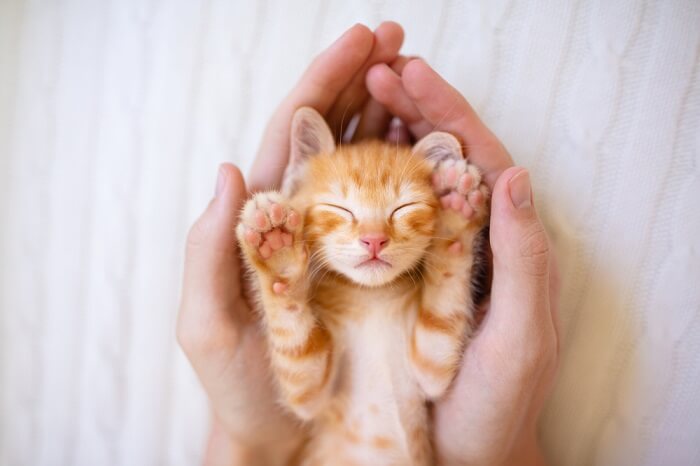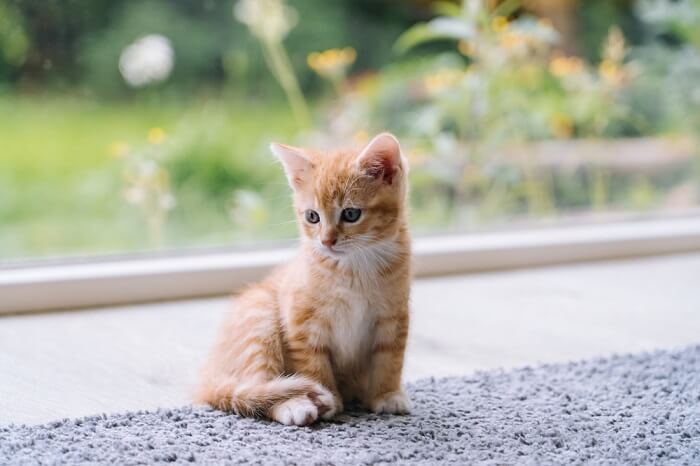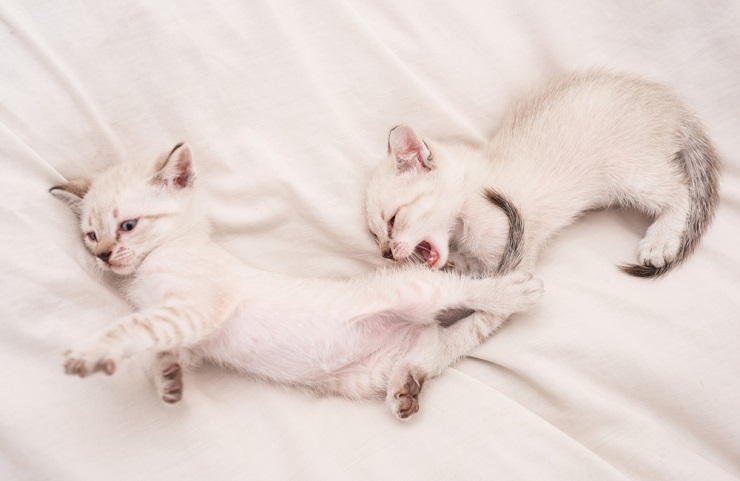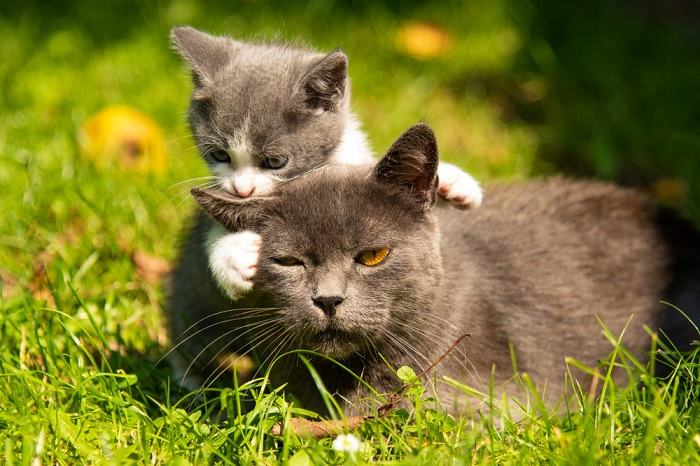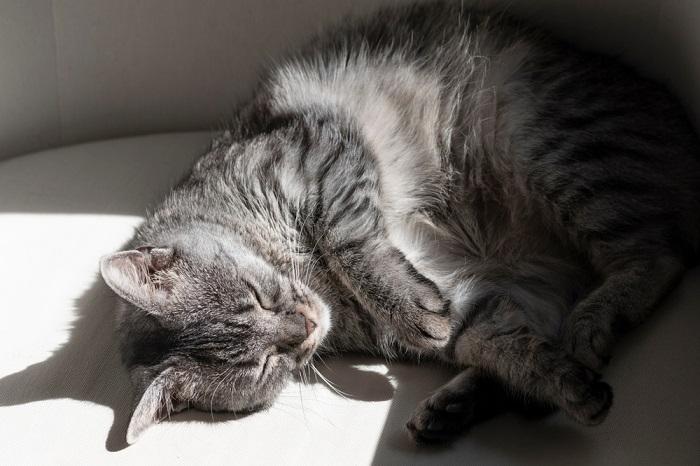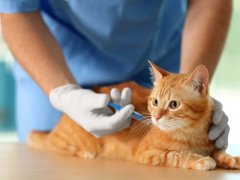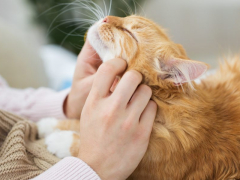It’s hard to find cuter and more lovable animals than kittens. Those bright eyes, little ears, and big faces can melt even the hardest of hearts! Also, their playfulness, curiosity, and need for attention are incomparable when it comes to animal babies.
Kittens are very playful and curious by nature, which contributes to their overall cuteness. They love to run, climb, play and explore their surroundings
That being said, their playfulness, curiosity, and youthful energy can often lead to destructive behavior and sometimes even injuries. So, it’s very important that your home has been properly prepared before adopting to make sure that you avoid any potential harm to them, and any harm to your home.
So, in this article, we will give you some important information about how to prepare your home for kittens, as well as giving you some useful tips about how to provide your newly adopted kittens with what they need to live happy and healthy lives.
At A Glance: Things To Consider When Kitten-Proofing Your Home
- Cords and Cables – Electrical cords should be covered or at least unplugged when not in use, and all blind cords should be out of your kittens’ reach. Chewing on electrical cables is very dangerous, and kittens can easily strangle themselves if they get tangled in blind cords.
- Windows and Curtains – Windows should be closed, window screens should not be exposed, and curtains should also be closely monitored. Kittens love to climb which can lead to them injuring themselves and damaging your home in the process.
- Plants and Other Inedibles – Plants, flowers, and other non-edible items can be very attractive to curious kittens. So, make sure that your plants and flowers are not poisonous if ingested, and keep any medications and cleaning supplies safely out of their reach.
- Keep Kittens Indoors – Kittens love to explore, but they should be kept indoors while they are developing their growing immune systems, and to help prevent them from becoming prey to any unwanted predators.
- Quarantining – If you have other, pre-existing cats in your home when you adopt your new kittens, keep your kittens quarantined from your pre-existing cats until your kittens are old enough to get their appropriate vaccinations.
- Food Monitoring – Be sure to pay very close attention to what your newly adopted kittens are eating, and make sure that they don’t eat any food that you leave out for other animals that may already live in your home.
Things To Keep In Mind About Kitten-Proofing Your Home
Kitten-proofing your home isn’t difficult, and it’s an essential part of protecting both your new kitten and your home.
In this article, we’ll expand on some of these important things to consider when how to kitten-proof your home.
And, remember, all kittens have their own unique personalities, so you may have to do some experimenting to discover what works best for them, and what works best for you. Still, kittens can enhance almost anyone’s life, and you can definitely enhance the lives of the kittens that you adopt.
#1 Keep Cords And Cables Safely Out Of Reach
Chewing is a very common thing that kittens do, either due to teething, curiosity, or just youthful playfulness. However, chewing can also be very dangerous when it comes to cords and cables.
Kittens can easily get tangled and potentially strangle themselves while playing with blind cords, and chewing on electrical cables, whether plugged in or not, can also be extremely dangerous for them.
So, make sure that electrical cords are covered or unplugged when not in use, and that blind cords are out of their reach.
This is especially important when it comes to cables that often lay on the floor, such as for phone chargers, computers, lamps, space heaters, and paper shredders. We humans may not always notice these cables, but curious kittens will usually find them!
#2 Pay Attention To Windows And Curtains
Because of their playfulness and curiosity, kittens love to climb on just about anything that they can sink their claws into. As good as it is for them to get some exercise and use up some of that youthful energy, windows, window screens, curtains, and blinds need to be closely monitored to avoid any injuries to them, as well as avoiding any potential damage to your home.
It’s best if you can keep your windows closed whenever possible. But, if you must open your windows, make sure that they have secured screens to prevent your kittens from escaping or accidentally falling out.
And, never leave a kitten unattended with an open window, whether or not you have a secured screen in place. As for curtains and blinds, try to keep your blinds raised whenever possible, and drape curtains over their curtain rods to keep them out of your kitten’s reach.
#3 Check Your Plants, Flowers, And Other Inedible Items
As mentioned, kittens love to chew on just about anything, whether or not it’s actual food. It’s a natural and common habit for kittens (and many adult cats) to eat plants and flowers – sometimes for the added fiber, sometimes for the taste, and sometimes just out of boredom.
So, before bringing home a kitten, check any types of plants and flowers you may have to make sure that they are not potentially poisonous if ingested. It’s a good idea to simply place them out of their reach just to be safe.
As for other inedible and potentially dangerous items around your home, you should definitely make sure that medications, toiletry items, and cleaning supplies are all securely stored in places where curious kittens can’t find them. Also, make sure that wastebaskets and garbage cans are put away and not left out in the open, and be sure that your toilet seats are closed.
#4 Keep Your Kittens Indoors At All Times
It’s very tempting to let your kittens outside so that they can play, do some additional exploring and enjoy a little fresh air. However, letting them outside can be a potentially dangerous idea.
Kittens can be prone to getting various infections and diseases while their immune systems are developing during the early stage of their lives. Also, kittens can often be defenseless against predators, and female kittens can become impregnated when they are as young as four months old.
So, resist the urge to let your kittens roam outside and keep them indoors, especially if they have not yet been spayed, neutered, or received their vaccinations. Also, keeping your kittens indoors during this early stage of their lives can help to reduce their urges for potentially running away if they are accidentally let outside.
#5 Make Sure That Your Kittens Are Quarantined
As previously mentioned, kittens need time to develop their immune systems while they are growing, and kittens need to reach a certain age before they can begin receiving their appropriate vaccinations. Also, vaccinations can require multiple veterinarian visits and booster shots to ensure that your kitten’s immune system can resist any potential diseases or infections.
If you have other cats that already live in your home, be sure to keep your newly adopted kittens quarantined until after they have been fixed and have received all of their necessary vaccinations to be sure that they won’t contract any potential diseases or infections.
Give your kittens their own food and water bowls, their own litter box, and keep your kittens temporarily isolated from your other cats during this period.
#6 Monitor Your Kitten’s Food And Water
Besides making sure that your kittens have the right food, ensure that your kittens are kept away from other pets’ food and water bowls.
Cat food, whether it is wet or dry, comes in several different varieties that are specifically made depending on a cat’s age and nutritional needs. Kittens and adult cats all have different food requirements, so you must feed a newly adopted kitten a healthy and balanced diet to help them develop into healthy, adult cats.
Read More: Top 7 Best Kitten Foods
However, kittens (as well as other animals) tend to explore food and water bowls that are not designated for them because of their new aromas and flavors.
So, it’s extremely important to keep your kitten’s food and water bowls separate from other animals in your home to prevent the spread of any potential diseases or infections. Also, be sure to disinfect your kitten’s food and water bowls daily.
Final Thoughts
Kittens are incredibly fun and affectionate animals, and they can usually adapt to most home environments in a very short amount of time. However, there are many things to consider when it comes to kitten-proofing your home before adopting.
But, if you create a safe environment for them, you can help your kittens grow up to be happy and healthy adult cats, as well as creating a lot of long-lasting, happy memories for yourself.
